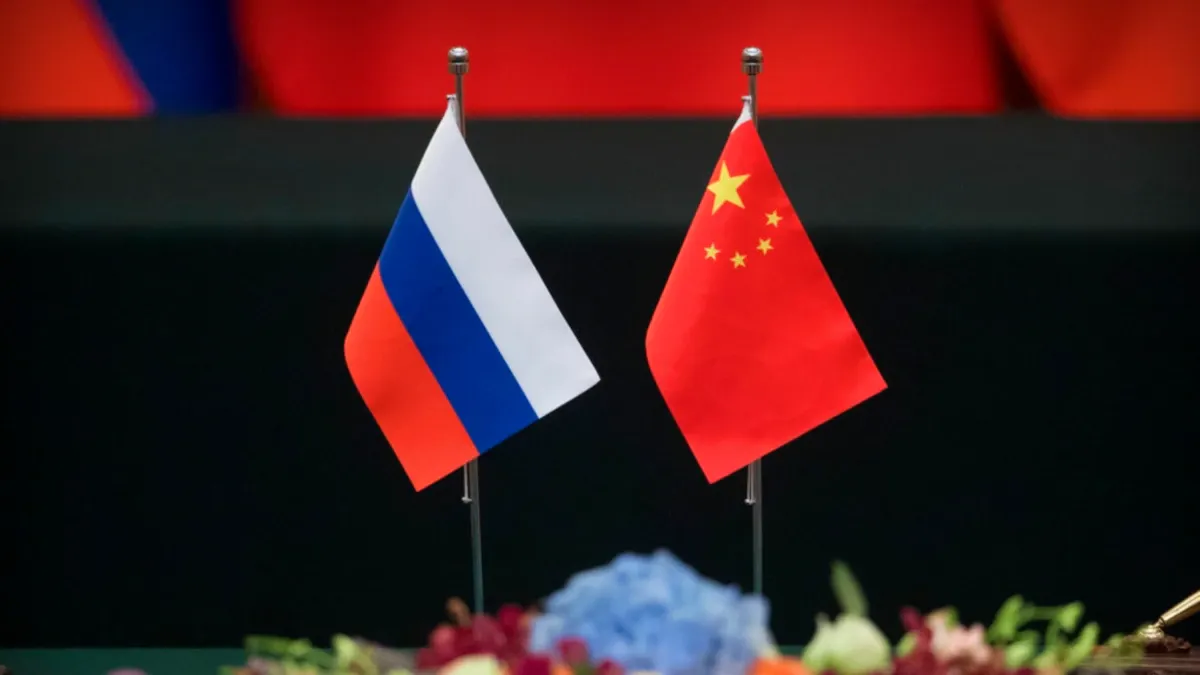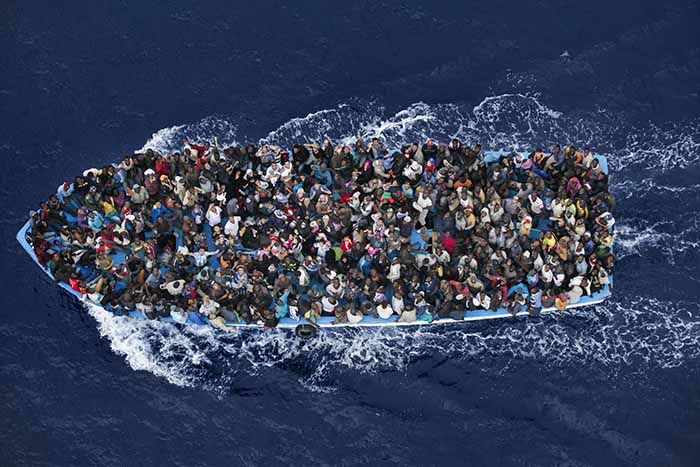The China-Russia Alliance: A Threat to the West?
The China-Russia partnership poses a significant threat to the West's economic and military power. But how can the West respond to this growing alliance?

The intricate and dynamic interactions between China, Russia, and the West have changed the geopolitical environment in recent years. China's relationship with Russia has grown more crucial as a result of its continued ascent as a global power, and has proposed particular problems for the West. Understanding these partnerships' impact on the geopolitical balance and the difficulties they pose for the West is crucial. We shall examine the nature of China's relationship with Russia and how it affects the West, as well as the steps the West can take to deal with this tricky position.in this blog article.
China and Russia's relation is nothing new, going all the way back to the Cold War. Both nations have a common rivalry with the West and have shared similair communist ideologies before. The relationship between these two countries has, however, historically been characterised by mutual apprehension and a history of disputes, including a border dispute in the 1960s that almost sparked a nuclear exchange. In spite of these disagreements, China and Russia have increased their economic and military cooperation during the past ten years, bringing them closer together.
The two nations agreed on a landmark $400 billion energy deal in 2014, which saw Russia agreeing to provide China with natural gas for 30 years. The deal gives China access to a new energy supply while also assisting Russia in reducing its reliance on the European market. In addition, Russia has given China advanced weaponry, notably the S-400 missile defence system, and the two countries have participated in joint military drills.
The alliance between China and Russia worries the West because it poses a serious threat to the current global system. According to Dimitri Trenin, the director of the Carnegie Moscow Center,
"China and Russia are committed to establishing a multipolar world order and reducing Western dominance."
It is possible that the alliance between these two countries may tip the scales of power away from the West, leading to significant geopolitical ramifications.
Concerns have also been raised by China and Russia's alliance regarding their combined efforts to undermine the international system. According to a report by the Australian Strategic Policy Institute, "China and Russia are increasingly aligning their interests and policies, including their opposition to the US-led liberal international order."The paper also emphasises how China and Russia's alliance could threaten international institutions and norms, which could have detrimental effects on the stability and security of the global community.
Threats to the West
Concerns about potential risks to Western interests have been expressed as a result of China and Russia's expanding alliance. These dangers can be divided into three groups: military, economic, and diplomatic.
China and Russia have recently collaborated on military drills. Their first cooperative naval exercises took place in the Baltic Sea in July 2021, and their first joint air defence drills took place in Russia in August 2022. These drills show how the two nations' willingness to project strength together and their expanding military collaboration. There are also worries that China would back Russia in Ukraine, see my blog on China's view on the invasion China may assist Russia in waging its war, NATO has warned, and the US has vowed "severe consequences" if it does.

Secondly, the West is equally concerned about the economic risks posed by the China-Russia alliance. China and Russia have negotiated a number of energy agreements in recent years, including the aformentioned $400 billion petrol agreement in 2014. By decreasing the reliance of Western nations on Russian energy exports, these agreements have the potential to diminish the economic might of the West. Furthermore, trade connections between China and Russia have grown. By 2024, the two nations set a goal for their bilateral commerce at $200 billion. The West's attempts to economically isolate Russia in reaction to its actions in Ukraine may be impeded by this expanding economic collaboration with China and bring the two countries even closer.
The alliance between China and Russia also threatens Western diplomacy. When it comes to topics like international law and human rights, the two nations have demonstrated a willingness to stand together against the West. For instance, China and Russia blocked a UN Security Council proposal in 2020 that would have allowed Syria to receive humanitarian help from across international borders. Furthermore, both China and Russia have critiqued the Western-dominated international system and pushed for a more multipolar one. This might jeopardise Western efforts to preserve their hegemonic status of the world order and lead to future conflict.
China's Ambiguity and Hypocrisy
The West has been concerned about China's ties with Russia because of the possibility that the two nations could work together against Western interests. Though somewhat ambiguous, China's position on the Russia-Ukraine crisis has complicated its relations with both Moscow and the West. China has been trying to strike a balance between maintaining a positive relationship with Moscow and avoiding conflict with the West.
China has voiced its concern over the dispute and advocated for a peaceful conclusion, but it has held back from outright denouncing Russia's actions. This ambiguity highlights the difficulties in navigating the complex geopolitical environment of the twenty-first century while also reflecting China's aim to uphold good relations with both Russia and the West.
China's own violations of international law and contempt for human rights complicate its relations with the West even further. China has come under fire in recent years, among other things, for its treatment of ethnic minorities in Xinjiang, its repression of democracy in Hong Kong, and its territorial claims in the South China Sea. As an article from Carnegie Endowment for International Peace notes, "China's claims to promote sovereignty and territorial integrity are undermined by its disregard for the same principles in its relations with its neighbours."
A list of websites going in detail on all of China's human right violations
Concerns about China's goals and intentions have also been raised by the country's military and economic expansion in the South China Sea and elsewhere. According to a report from the Council on Foreign Relations, "some observers have concluded that China is seeking regional hegemony" due to its "growing military capabilities and determination to challenge U.S. leadership in Asia."
The West faces considerable obstacles as a result of China's ambiguity and duplicity in its foreign affairs, particularly as it attempts to balance the rising power of China and Russia. "China's ambiguity and hypocrisy should be a warning to Western nations that engaging with Beijing requires a clear-eyed view of the strategic landscape and an understanding of its objectives and tactics." says an article from the Australian Strategic Policy Institute.
The West's Response
The West has been addressing the potential concerns posed by the China-Russia collaboration as it continues to expand. Below are a few illustrations of recent endeavours as well as prospective future reactions.
The West has used diplomatic pressure on China and Russia as one strategy. As an example, the United States and its allies have sanctioned Russia for its conduct in the Ukraine and denounced China for violating human rights in Xinjiang and Hong Kong. Also, as a show of force against prospective military threats from China and Russia, the US and its allies have been conducting joint military drills in the region.
Some experts argue that these initiatives might not be sufficient to undermine the China-Russia alliance. For instance, senior scholar at the Brookings Institution Michael O'Hanlon asserts that "it's going to be a long time before the West has anything close to a viable response" to the alliance between China and Russia.
As a result, some advocate for stronger connections with regional allies as well as promoting financial competition with China. To counter China's economic influence in the area, the US has been pressing for a free trade agreement with Taiwan. In order to bolster its position in the face of the China-Russia collaboration, the US has also been forging tighter connections with other nations in the region, including India and Japan.
Ultimately, the West's reaction to the alliance between China and Russia is likely to be complex and continuing. More economic competition and closer ties with allies may be required to offset the potential challenges posed by this collaboration, in addition to diplomatic pressure and military readiness.
Final Thoughts
In conclusion, the alliance between China and Russia represents a serious military and economic threat to the West. The historical background of China and Russia's relationship and the current status of their alliance show that it is a power to be reckoned with. This alliance has the power to alter world affairs and lessen the dominance of the West.
The situation is further complicated by China's ambivalence and hypocrisy in its foreign policy strategy, making it more difficult for the West to formulate a sensible response. But the West isn't doing nothing. There are currently diplomatic pressure and military readiness efforts being made to address this alliance. In addition, the West is considering potential countermeasures in the future, such as stepped-up economic competition and stronger relationships with allies.
In order to effectively counteract the influence of the China-Russia relationship, the West must continue to constantly monitor it. Failing to do so could have detrimental long-term effects on Western nations and overall global stability. Hence, it is crucial to closely monitor how China and Russia's relationship is changing and to be ready to act accordingly.




